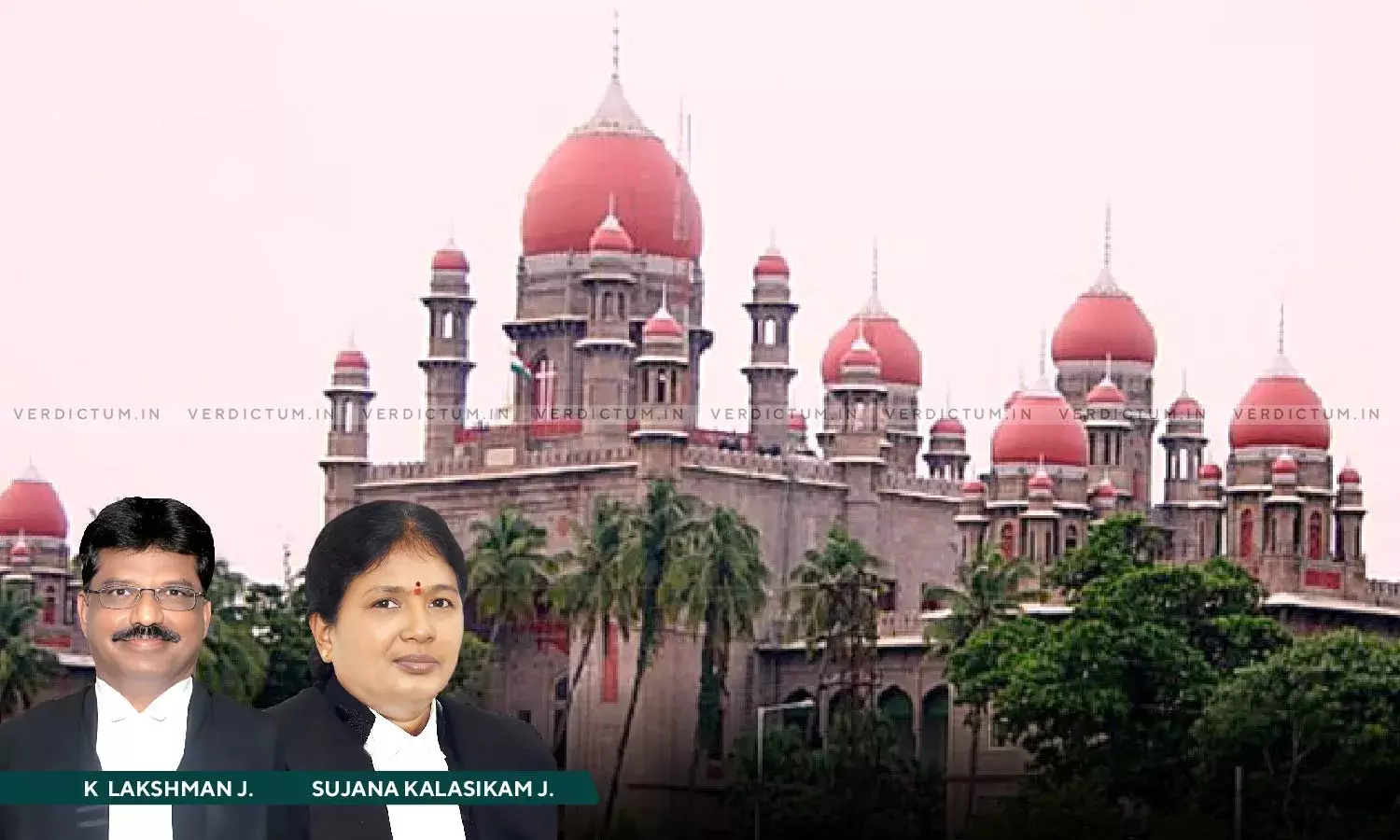Family Court Cannot Grant Divorce On Ground Of Cruelty Without Pleading And Proving It: Telangana High Court

The Telangana High Court held that the Family Court cannot grant a decree of Divorce on the ground of cruelty without there being a pleading and cogent evidence.
The Court held thus in an appeal filed by a wife against the decree of divorce passed by the Family Court, Hyderabad.
A Division Bench comprising Justice K. Lakshman and Justice P.K. Sujana observed, “… the Court below erred in granting divorce to the respondent/husband by dissolving the marriage of the appellant/wife with him solemnized on 17.02.2005 on the ground of cruelty. As discussed supra, the Family Court cannot grant decree of divorce without there being a pleading and cogent evidence. The Court cannot grant divorce on the ground of cruelty without pleading and proving the same.”
Senior Advocate G. Pedda Babu appeared on behalf of the appellant/wife while Advocate Vishnu Prasad Reddy appeared on behalf of the respondent/husband.
Brief Facts -
The respondent/husband had filed a petition under Section 13 (1) (ib) of Hindu Marriage Act, seeking dissolution of marriage on the ground of desertion against the appellant/wife, before the Family Court. His marriage with the appellant was solemnized in 2005 as per Hindu rites and customs and the same was registered. After marriage, they lived together hardly for one month and thereafter, left to USA for short period. They were blessed with a baby boy and thereafter, disputes arose between them. According to the husband, his wife deserted him and thereafter, he had filed a petition before the Senior Civil Judge’s Court, at Medak, on the ground of desertion.
The pre-condition to file an application seeking dissolution of marriage on the ground of desertion is that the desertion should have for a continuous period of at least two years prior to the date of presentation of the petition. Therefore, it did not fulfill the said condition of two years. Subsequently, the husband withdrew the aforesaid ground and then filed an application under Order VI Rule 17 of CPC seeking to permit him to amend the provision invoked in the Original Petition. He wanted to include Section 13(1) (ia) of the Hindu Marriage Act also, which is a ground of cruelty. The Family Court allowed the said application and being aggrieved with this, the wife approached the High Court.
The High Court in view of the above facts of the case noted, “It is relevant to note that the Family Court in the impugned order gave a specific finding that the respondent/husband failed to prove the said illegal intimacy developed by the appellant/wife with her brother-in-law Mr. Srinivasa Rao.”
The main issue that was to be decided by the Court was whether the Family Court is justified in granting divorce to the respondent/husband on the ground of cruelty which was not pleaded and proved.
“… the respondent/husband had filed the aforesaid O.P. initially on the ground of desertion. However, he has withdrawn the said ground. There is no pleading with regard to cruelty. As rightly held by this Court in the order dated 22.09.2014 in CRP No.1249 of 2014 that not a word was said about the cruelty in the pleadings, either in the original form or through the said amendment, thus, trial Court committed error in observing that no prejudice will be caused if the amendment is to be permitted. Thus, the application filed by the respondent/husband vide I.A.No.619 of 2013 seeking to amend the prayer to include ground of cruelty under Section 13(1)(ia) of the Hindu Marriage Act was dismissed”, said the Court.
The Court further said that the respondent/husband is not entitled to amend the prayer at the stage of appeal and hence, the Family Court erred in granting divorce to him by dissolving the marriage on the ground of cruelty.
Accordingly, the High Court allowed the appeal and set aside the order of the Family Court.
Cause Title- A. Asha Latha v. Abisetti Venkata Rao


